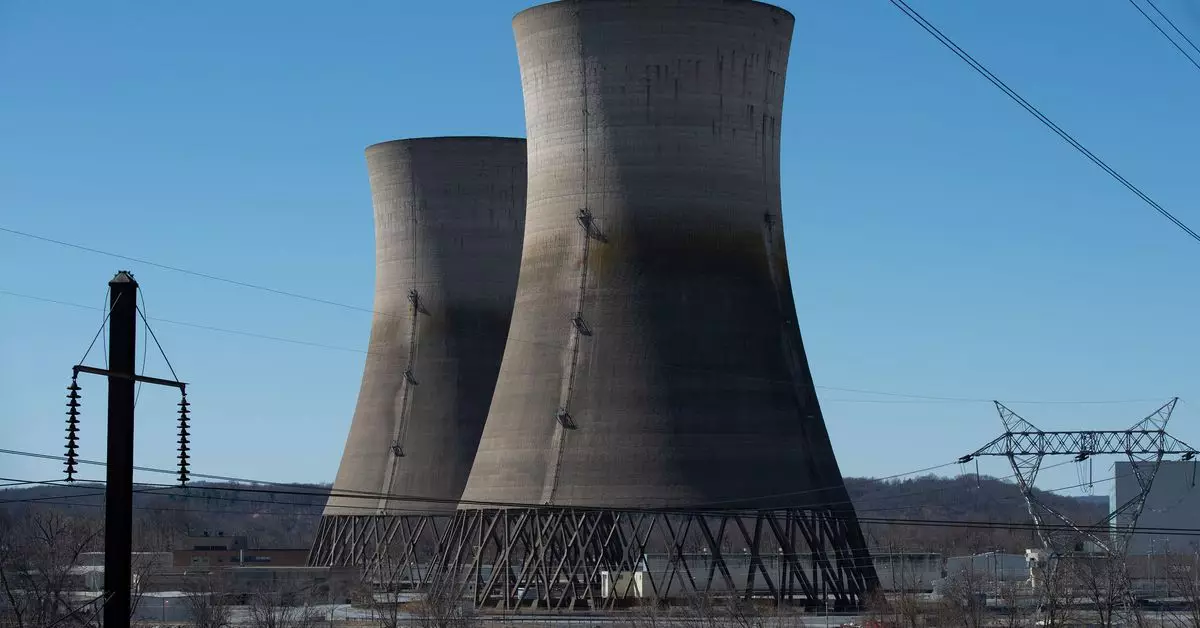In an unprecedented move, Microsoft has entered into a noteworthy agreement to breathe new life into the now-defunct Three Mile Island nuclear facility. This deal, if ratified by regulatory bodies, would allow the tech titan to harness all of the plant’s electricity output, a critical necessity for their expanding AI data center operations. Announced by Constellation Energy, the deal demonstrates a significant shift in how tech companies are approaching their energy needs, especially as they grapple with their environmental footprints. If all goes according to plan, the plant will be revitalized by 2028, marking a significant milestone not only for Microsoft but also for the nuclear energy sector.
The historical weight of the Three Mile Island site cannot be understated; it was the location of the most infamous nuclear accident in United States history back in 1979. Despite the plant being previously shut down in 2019 primarily due to economic factors, its revival signifies a bold pivot towards cleaner energy alternatives as tech companies increasingly seek sustainable sources to power their operations. The projected energy output of 837 megawatts from the revived facility could potentially illuminate over 800,000 homes, highlighting the immense power requirements that come with modern data-intensive applications and AI technology.
Typically, the tech industry has been perceived as a leader in sustainability; however, key players like Microsoft find themselves walking a tightrope between innovation and environmental responsibility. With an emphasis on AI technologies, the company has reported a rise in its greenhouse gas emissions, casting doubt on its previously ambitious climate targets. The strategic procurement of energy from the reimagined Three Mile Island plant is viewed as a pivotal step toward their aim of achieving carbon neutrality by 2025.
Bobby Hollis, vice president of energy at Microsoft, remarked that this agreement is an essential stride in their quest to support the decarbonization of the energy grid. This partnership not only aligns with their green ambitions but also offers a practical solution to meet capacity and reliability needs in the ever-expanding energy landscape. Furthermore, Microsoft’s focus on developing carbon-free energy sources reflects a concerted effort to harmonize technological advancements with environmental stewardship.
This venture into nuclear energy is not a mere outlier; rather, it is part of a broader trend among technology firms exploring next-generation energy solutions. Microsoft, spearheaded by co-founder Bill Gates—an ardent advocate for nuclear energy—has shown a keen interest in small modular reactors (SMRs) as an efficient and scalable means of supporting data center operations. The proposed investment of $1.6 billion from Constellation illustrates the company’s commitment to rejuvenating this energy source, which could play a critical role in redefining the energy landscape.
Additionally, the plant is undergoing a name change to Crane Clean Energy Center, a tribute to former Exelon CEO Chris Crane, further signifying a respect for legacy while also charting a path forward. Nevertheless, the path to reactivating this nuclear facility is fraught with regulatory hurdles. Approval from the Nuclear Regulatory Commission, along with necessary permits from various state and local agencies, will be crucial for any progress to be made.
Microsoft’s foray into nuclear energy not only highlights the complexities of energy consumption in the tech sector but also propels the conversation surrounding sustainable energies to the forefront. The intersection of technology and energy has become increasingly pivotal, driving innovation as companies are compelled to rethink their strategies in the face of climate change. The commitment to revive the Three Mile Island facility offers a blueprint for others to explore similar synergies between technological advancement and energy sustainability.
Microsoft’s recent agreement represents a meaningful step towards harmonizing the tech industry’s insatiable hunger for power with the pressing need for sustainable energy sources. As the world continues to navigate the complex dilemmas posed by climate change and technological expansion, partnerships like the one forged between Microsoft and Constellation Energy could pave the way for future innovations that align corporate interests with environmental responsibility. It is this dual focus on energy and technology that will likely shape the future of both sectors.


Leave a Reply